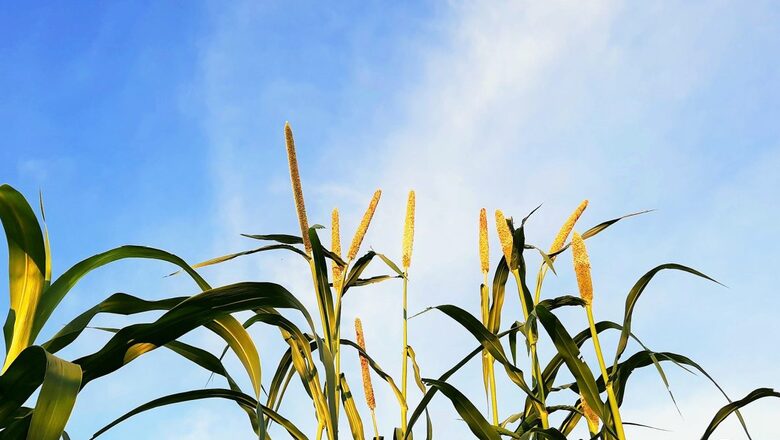
views
During winter eating a healthy diet which is rich in fibre is extremely important to have a healthy digestive system. And Bajra and Makka are two nutritional powerhouses that take centre stage during this season. These two high-fibre grains not only offer a warm winter meal but also significantly contribute to overall well-being.
Shammi Agarwal, Director, Pansari Group, says, “Bajra and Makka offer numerous digestive health benefits which are particularly beneficial during the winter season. I strongly promote the well-being of human health through the integration of natural and nutritious food into our daily lives. The high fibre content in these grains helps in smooth digestion. Bajra, with its earthy flavour, and Makka, with its versatility in various culinary creations, not only satisfy our taste buds but also nurture our digestive systems. Bajra’s high carbohydrate content provides energy and warmth which makes it ideal for the cold season. This isn’t just about what we eat but a conscious decision to create a harmonious relationship between time-honoured nutritional wisdom and the demands of modern life.”
Eating healthy and traditional grains is not just a choice but a lifestyle decision towards a healthy and balanced existence.
Dt. Divya Gopal, Consultant Dietitian and Nutritionist, Motherhood Hospitals, Banashankari, Bengaluru explains, “As the winter sets in, our dietary preferences shift towards heartier and warming foods. From the plethora of grains available, Bajra and Makka stand out due to their nutritious value which provides warmth and contributes to digestive health.”
4 Benefits of Bajra and Makka for Digestive Health in Winter:
- High Fibre ContentBajra and Makka are good sources of dietary fibre, which promotes a healthy digestive system and aids in maintaining fullness to curb overeating Furthermore, it promotes bowel movements and cures the common issue of constipation.
- Gluten-Free AlternativeBoth grains are naturally gluten-free, thereby making it an excellent choice for those with gluten sensitivities or celiac disease.
- Nutrient DensityDuring winters, people are at risk of nutrient deficiencies as fresh produce is often not readily available. Both Makka and Bajra are the most nutrient-dense grains one can opt for during winter. They are packed with essential vitamins and minerals such as iron, magnesium, and phosphorus.
- Gut Microbiome SupportThe fibre in these grains supports the proliferation of beneficial gut bacteria, fostering a balanced and resilient gut microbiota
In short, Bajra and Makka offer a significant positive impact on people’s digestive health during winter. These grains can provide a comforting and nutritious foundation for a person’s meals, the high fibres in it help the human body function best during winter. From soulful soups to hearty rotis, these gluten-free alternatives create a delightful and healthy eating experience. Eating Bajra and Makka during the winter season is an opportunity to nourish yourself with the fibre-rich goodness.

















Comments
0 comment